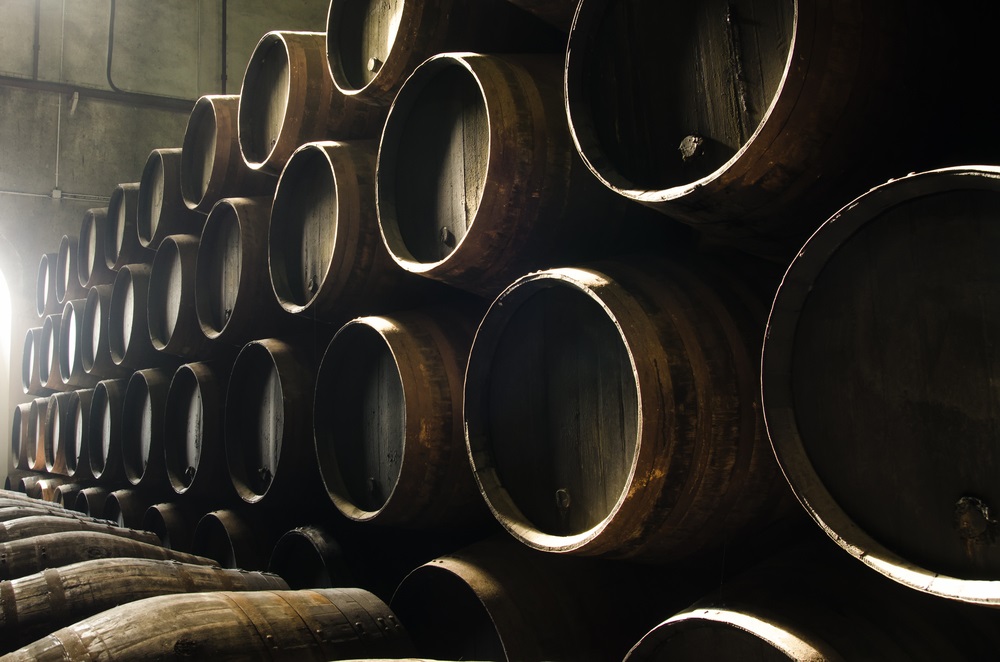In a world where what we eat and drink is often decided by the latest trends, whiskey goes the other direction, providing a stable, almost sacred pastime.
Whether sharing a bottle with your comrades amidst bonding sessions or exchanging late-night confessions over a glass, whiskey is a dependable spirit that is always ready to breathe life and set the mood.
However, the curse of every whiskey enthusiast is that, over time, we typically pile up a backlog of unopened and half-empty bottles waiting to be consumed.
Do you still have that one half-filled bottle from last New Year’s Eve? Then you are probably wondering if whiskey can go bad and if your half bottle is still fit for consumption. The answer to the first question is ‘yes, whiskey can go bad.’ The second question, however, like most questions can only be answered with ‘it depends.’
Contents
How Long Does Whiskey Last?
If you are even a bit familiar with whiskey, you are probably aware that spirits last pretty much forever. However, when it comes to personally taking a chance on an opened bottle from last year, you will probably hesitate and wonder if it is safe.
Yes, whiskey can go bad, but its shelf life depends significantly on whether the bottle is opened or not.
Sealed bottles of whiskey can last almost forever. Provided it is stored properly, a bottle from the 90s should offer you a similar flavor and aroma as any you can pick up at Target today. Besides, whiskey from a 1907 expedition to Antarctica led by Sir Ernest Shackleton were recovered in 2010, with a few bottles still in drinkable condition.
Opened bottles of whiskey are a whole different story. Once a bottle of whiskey is opened for the first time, its shelf life drops to around six months to two years. Anything outside this time frame, and you may be left with subpar whiskey.
The degradation of the whiskey over time results from oxidative processes and the slow evaporation of alcohol. At first, evaporation of alcohol leaves the whiskey with a slightly smoother taste.
However, over extended periods, excessive oxidation can affect the taste of the liquor in unpredictable ways. Hence, we do not recommend you have multiple bottles of whiskey open at the same time. Furthermore, you should consume half-empty bottles as soon as possible to get the best quality liquor.
How to Tell if Whiskey has Gone Bad
Since whiskey is high-proof alcohol, the chance of any mold or bacteria developing in that environment is close to zero.
In sporadic cases, the work may get moldy, and this is enough cause to discard the liquor only because some contaminants might have fallen into the bottle. You should also throw out whiskey if any visible or liquid pollutants have entered the container.
A much more common problem is whiskey losing its taste from oxidation and exposure to air. In this case, only your taste buds can judge if the liquor is still good enough for consumption. To prevent such issues, you should follow best practices for storing opened whiskey bottles.
Tips for Properly Storing Whiskey
Provided the bottle of whiskey is still sealed and unopened; the only storage requirements are to keep it upright in a cool and dry place. In such conditions, the liquor will remain in tip-top condition indefinitely.
However, if you are storing opened bottles, you must take special care to match the requirements mentioned above as well as adhere to a few other best practices.
Here are a few tips that are guaranteed to help keep your whiskey in excellent condition over time:
Always Store the Bottles Upright
Its is a quite common occurrence to see wine bottles stored horizontally in a bid to keep the cork moist, as this helps reinforce the seal. However, few wines can match the extremely high alcohol content of whiskey (typically 80 proof or higher.)
Hence, if you store whiskey horizontally, it is only a matter of time before the strong liquor damages the cork stopper. Compromised corks will exacerbate the degradation of whiskey.
Keep the Bottle Away from Light
Like with most other liquors, whiskey manufacturers recommend keeping the bottle in a cool and dark place away from direct sunlight. The reason for this warning is because excessive sunlight aggravates the chemical reactions that lead to the degradation of the liquor’s flavor.
Keeping the bottle at a stable constant temperature can also help extend the shelf life of your whiskey.
Keep the Cork Wet
While it is not advisable to store whiskey horizontally, keeping the bottle upright for extended periods can often dry out the cork. In extreme cases, dry corks crack and break easily and can compromise the seal of the container, leading to a risk of oxidation.
To prevent the cork from drying out, once or twice a year, rest your whiskey bottles horizontally for about an hour.
Open Bottle Etiquette
The best way to preserve the quality of your opened whiskey bottle over time is to transfer the remaining liquor into smaller sample bottles. With smaller containers, you can fill them to the brim, allowing little to no space for oxygen and reducing the chance of oxidation.
Alternatively, you can opt for Private Preserve, a mixture of carbon dioxide, nitrogen, and argon that forms a protective layer between your whiskey and any oxygen in the bottle.
